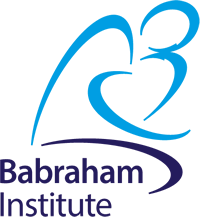Embryo implantation is critical for establishing a healthy pregnancy. Almost half of all human embryos fail to progress past this stage, resulting in a high rate of pregnancy loss. Central to the success of embryo implantation and development is the formation of the three main cell lineages: epiblast, trophectoderm and hypoblast. Pluripotent epiblast cells form the foetus and all of the specialised cell types of our bodies, the trophectoderm will mediate implantation into the endometrium and will form the placenta, and the hypoblast contributes to the yolk sac that is required for nutrient exchange. Understanding the genetic and epigenetic determinants that control how these lineages are formed in early human embryo development has fundamental biological importance with wide-reaching clinical implications.
Recent technological and conceptual advances have opened up new opportunities to investigate the molecular basis of early embryo lineage specification in humans, making this a very timely and exciting area of research. Synthetic embryo-like 3D structures called blastoids are formed by aggregating human pluripotent stem cells (PSCs), and these structures have a remarkable capacity to self-organise and specify the major cell lineages of the blastocyst. Importantly, we have recently developed an in vitro system that mimics the implantation niche, thereby allowing more faithful development of blastoids and potentially of human embryos. Because blastoids are genetically tractable and mimic key properties of early human embryos, they provide an important cell model to investigate developmental molecular mechanisms. To enable this, we have also optimised cutting-edge multi-omic sequencing methods that enable the profiling of transcriptomes and chromatin marks in small samples including in the same single cells. These exciting approaches are permitting deep insights into the molecular regulation of early cell fate decisions.
Project objectives:
This project will investigate the epigenetic pathways that contribute to lineage specification and progression in early human embryo development. The student will begin by generating blastoids from human PSCs, and will combine the blastoids with our newly developed in vitro implantation system in order to establish a peri-implantation embryo-like model. To map the epigenetic and transcriptional changes that occur in cell lineages during blastoid implantation and development, the student will use our in-house single cell multi-omic sequencing methods, and will compare the data to human embryo data sets where available. The student will then test the hypothesis that epigenetic regulators, such as Polycomb proteins, act to reinforce lineage barriers by disrupting those regulators in human PSCs during blastoid formation. Multi-omic sequencing, bioinformatic analyses and imaging approaches will characterise the associated phenotypes and mechanisms of lineage specification pathways.
The overall significance of this work will be to provide new and exciting insights into the gene regulatory principles that underpin cell fate decisions in human embryo development, with strong relevance for reproductive health and stem cell biology.
Project Training:
The student will join the Rugg-Gunn lab within the Epigenetics Programme (8 groups, ~50 researchers), and a Graduate Programme of 30-40 highly motivated students. S/he will be fully trained in all techniques required for this project, in particular human PSC culture and blastoid generation, genetic approaches including CRISPR/Cas9 gene editing and Degron-based systems, transcriptome and epigenome profiling by multi-omic assays, advanced imaging, bioinformatics data analysis, and a broad range of routine and specialist molecular techniques, all supported by state-of-the-art facilities at Babraham. We also anticipate that the student will be able to work with early stage human embryos during the course of their project. Cambridge is a thriving environment for stem cell and developmental biology and we are well connected to this community through our affiliations with the Stem Cell Institute (www.stemcells.cam.ac.uk), the Centre for Trophoblast Research (https://www.trophoblast.cam.ac.uk), the Reproduction Strategic Research Initiative (https://www.repro.cam.ac.uk) and the Epigenetics Club.
For more details of our research, please see:
http://www.babraham.ac.uk/our-research/epigenetics/peter-rugg-gunn
If you would like more information, or have any questions not answered on our website or the University of Cambridge Graduate Application Portal, please contact us on [Email Address Removed].
How to apply
All applications for PhD Studentships at the Babraham Institute need to be made using the University of Cambridge Graduate Application Portal regardless of funding source.
Please see the “Applying for a PhD” pages on our website for further details of the application process.
(For certain projects it is essential that you contact the Group Leader proposing the project BEFORE submitting your application via the University of Cambridge Graduate Application Portal to discuss possible funding options. Please see individual project descriptions for details.)
We hope to be able to invite short-listed applicants to attend our Institute Graduate Open Day on Wednesday, 19th January 2022 for a series of interviews. This will give applicants an opportunity to meet Group Leaders and their research groups, as well as receiving a tour of our research facilities. Reasonable travel expenses will be paid to those invited.
Students will not be able to take up an award unless they meet all University eligibility criteria and are successful in securing admission to the University. In addition, they will not be able to apply for a visa (if needed) until they hold an unconditional offer from the University.
The deadline for submission of applications via the Graduate Application Portal is Thursday, 2nd December 2021. Incomplete applications will not be considered.
If you would like more information, or have any questions not answered on our website or the University of Cambridge Graduate Application Portal, please contact us on [Email Address Removed].

 Continue with Facebook
Continue with Facebook



